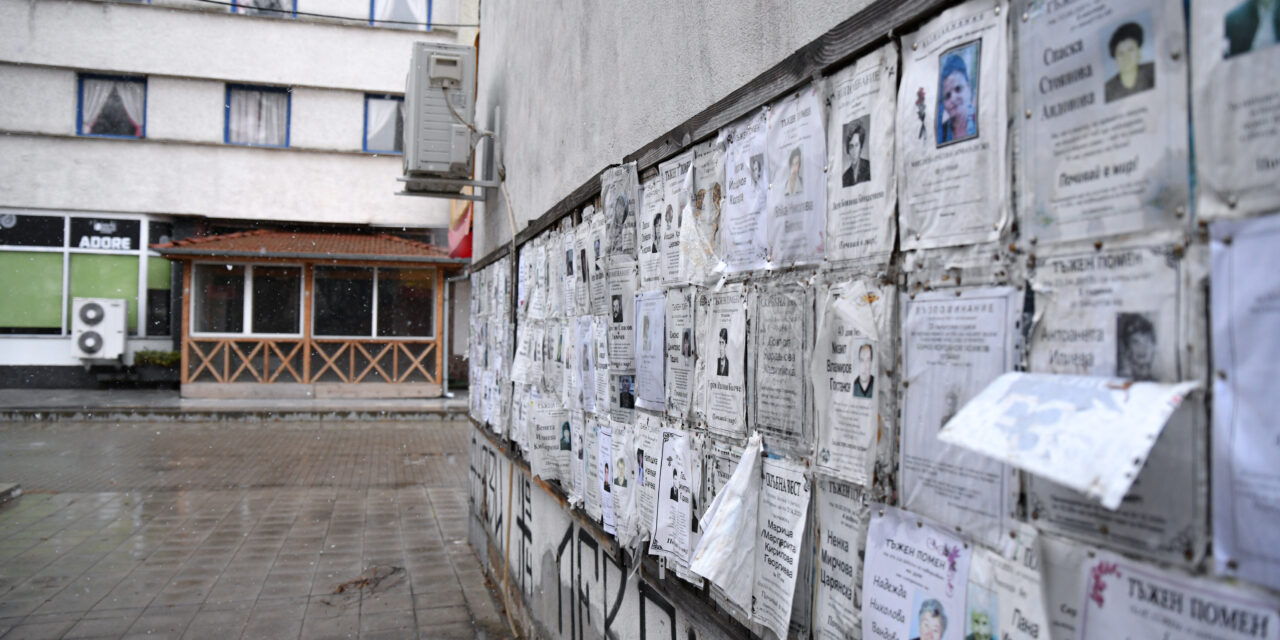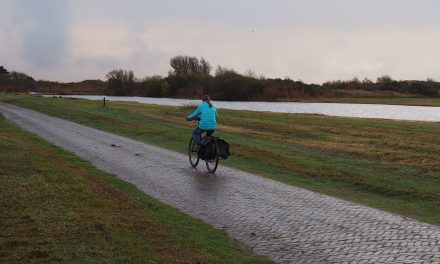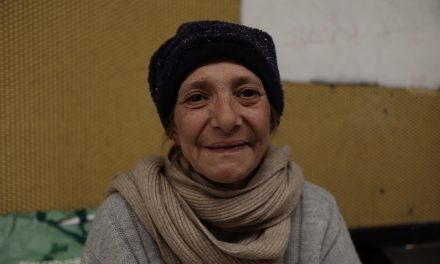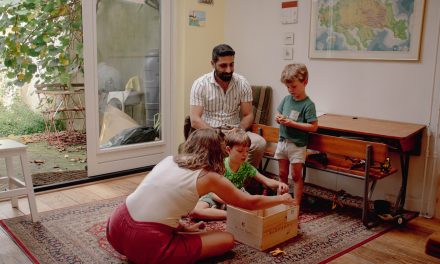A cold, windy afternoon in the village of Ihtiman. A village about 50 kilometers south of Bulgaria’s capital Sofia. The snow is slowly falling on abandoned fairground rides in front of Ihtiman’s municipality. Pictures of Bulgarians hang against a wall. Obituaries. Dozens, maybe a hundred, side by side. Most are still in good shape, as they have not been there for more than three, maybe four months. All are residents of the village that has about thirteen thousand inhabitants.
The population of Bulgaria has shrunk by 11.5% in the past 10 years. Those are the numbers that show the first results of the census that takes place every ten years in the country. This makes Bulgaria by far the fastest shrinking country in the world. Low birth rates, high mortality, and a large, steady stream of people who emigrate abroad every year in the hope of finding a better future, are the reasons why Bulgaria is expected to lose [23%] of its population between the years 2000 and 2050. The many covid-19 deaths, Bulgaria has the second-highest number of covid-19 deaths per capita in the world, have also not improved the numbers. This can also be concluded from the obituaries in Ihtiman.
Enlarge
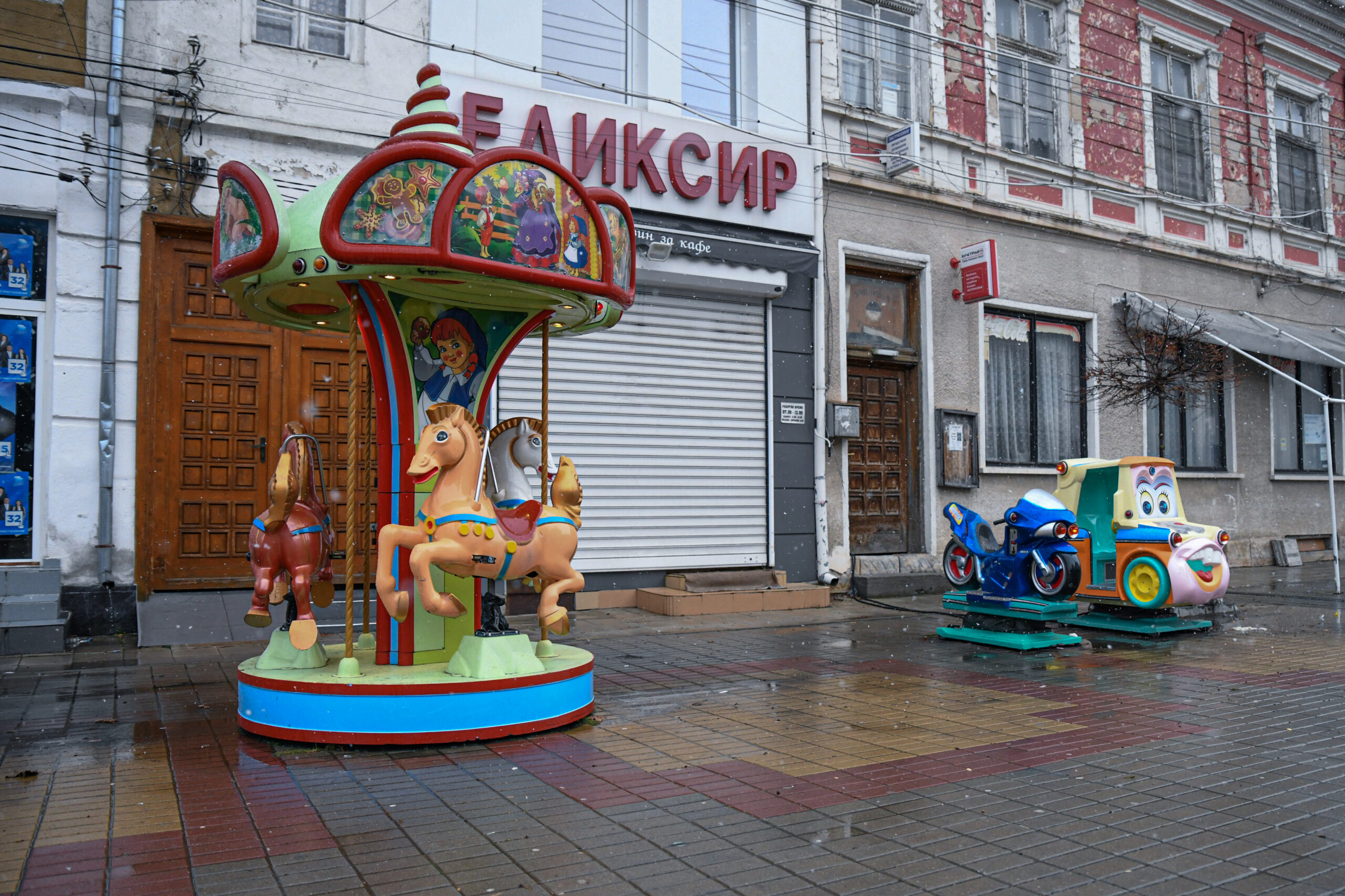
Leaving to realize
“People leaving to realize. That is what Bulgaria needs” says Vasko, a Bulgarian tour guide in the capital Sofia. He left for England in 2015, in order to find a better study, but came back to his home country after a few years. Love for his home country and want to start a family there was the main reason. Vasko is one of the many young Bulgarians who go abroad to find better study opportunities or a better future. “Studies in Western Europe are often better and in a country, like England, you are sometimes paid five times as much for what you would be paid for the same position in Bulgaria.”, says Vasko.
The reason that so many people are leaving Bulgaria also has to do with the fact that Bulgaria was a communist country for many years, according to the 25-year-old tour guide. “For years, options
were limited in the country. For example, you couldn’t just get on a plane to visit another country. Before you could leave, someone had to be aware of that.” According to Vasko, it is no wonder that when this became possible after 1990, people took advantage of the possibilities. “It’s like parents forbidding something for their child. Banning makes something even more exciting.”
Enlarge
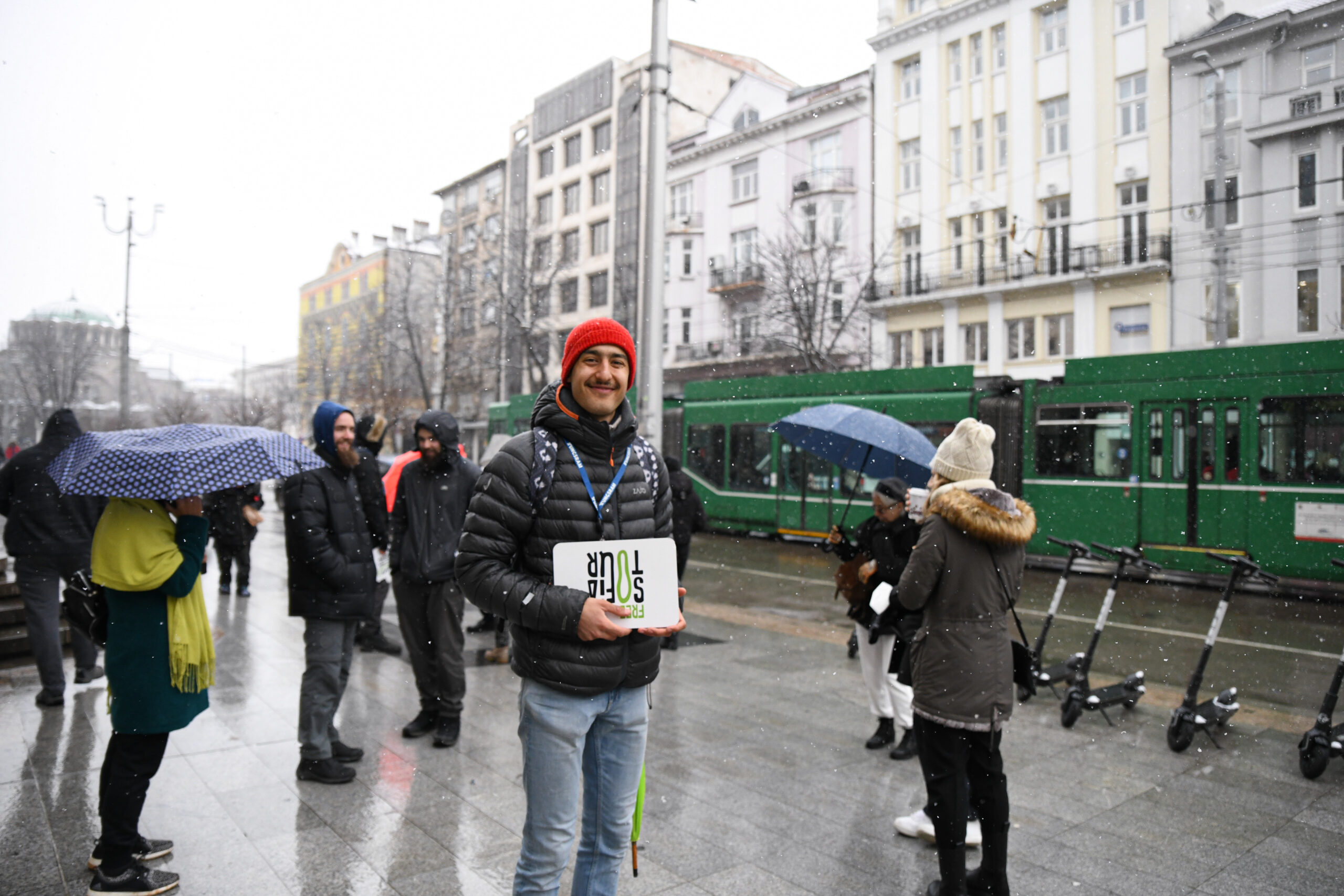
What happens after Communism?
After being part of both the Roman Empire and the Ottoman Empire, Bulgaria became a communist state from 1946 to 1989. In this communist era, the Bulgarian population grew from seven to nine million inhabitants. Todor Zhivkov, who led the country from 1954 to 1989, resigned in 1989, and shortly after, in 1990, the communist party, which he was leading, was shut down. Bulgaria became a democracy and from that very moment, the population has declined at a rapid pace.
However, according to Vasko, the times of 1990 have changed. “The contrast between Western European countries and Bulgaria is getting smaller. My mom used to make this joke that she had to raise me and my sister like animals living in a village like Sofia. Bulgaria was really poor at the time. 25 years later Sofia is, I guess, a mediocre European city, it is not glamorous but it is definitely getting better”.
Enlarge
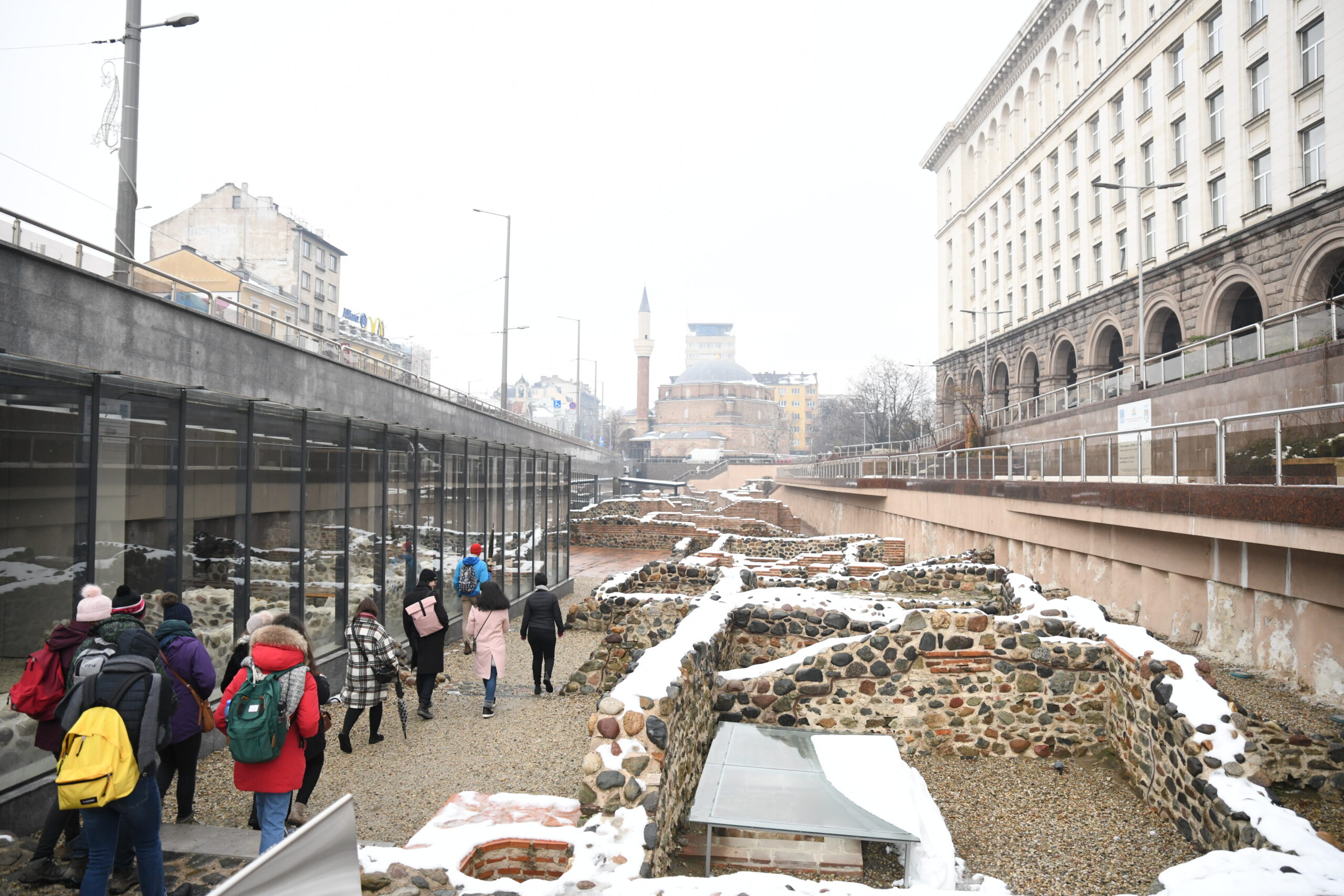
Vasko now gives daily tours of the city center of Sofia. Real passion can be seen in his eyes, while he takes International tourists through the recent history of Bulgaria. Vasko himself studied Masters in Urban Planning in Cambridge. Unfortunately, after graduating, he could not find a job in this sector in Bulgaria. So why he now works as a city guide. “But you can leave that out of the article. Otherwise, people will have this certain image about Bulgaria again.” Vasko says with slight laughter during the interview.”
If Vasko advises young people to return to Bulgaria? “Where you want to live is I think a very personal decision. I can’t say ‘all you young people abandoning the ship, you should come back and live here. Leave, discover and come back if that’s what you feel like. That’s what I wish everyone.”
Bulgaria’s joining the EU
It was in 2007 that Bulgaria joined the European Union. After years of extreme unemployment, it was a moment that many Bulgarians had been looking forward to for a long time. After 2007 everything would get better. This dream was only short-lived, as the country was hit exceptionally hard by the economic crisis in 2008. Unemployment rose and gradually more and more Bulgarians started to wonder whether things had really improved since joining the European Union.
Unemployment in the country has since stabilized again, but the covid-19 pandemic caused unemployment to rise slightly for the first time in 2019. In 2018, almost a quarter of the Bulgarian population still lives below the poverty line, according to figures from the European Commission.
Enlarge
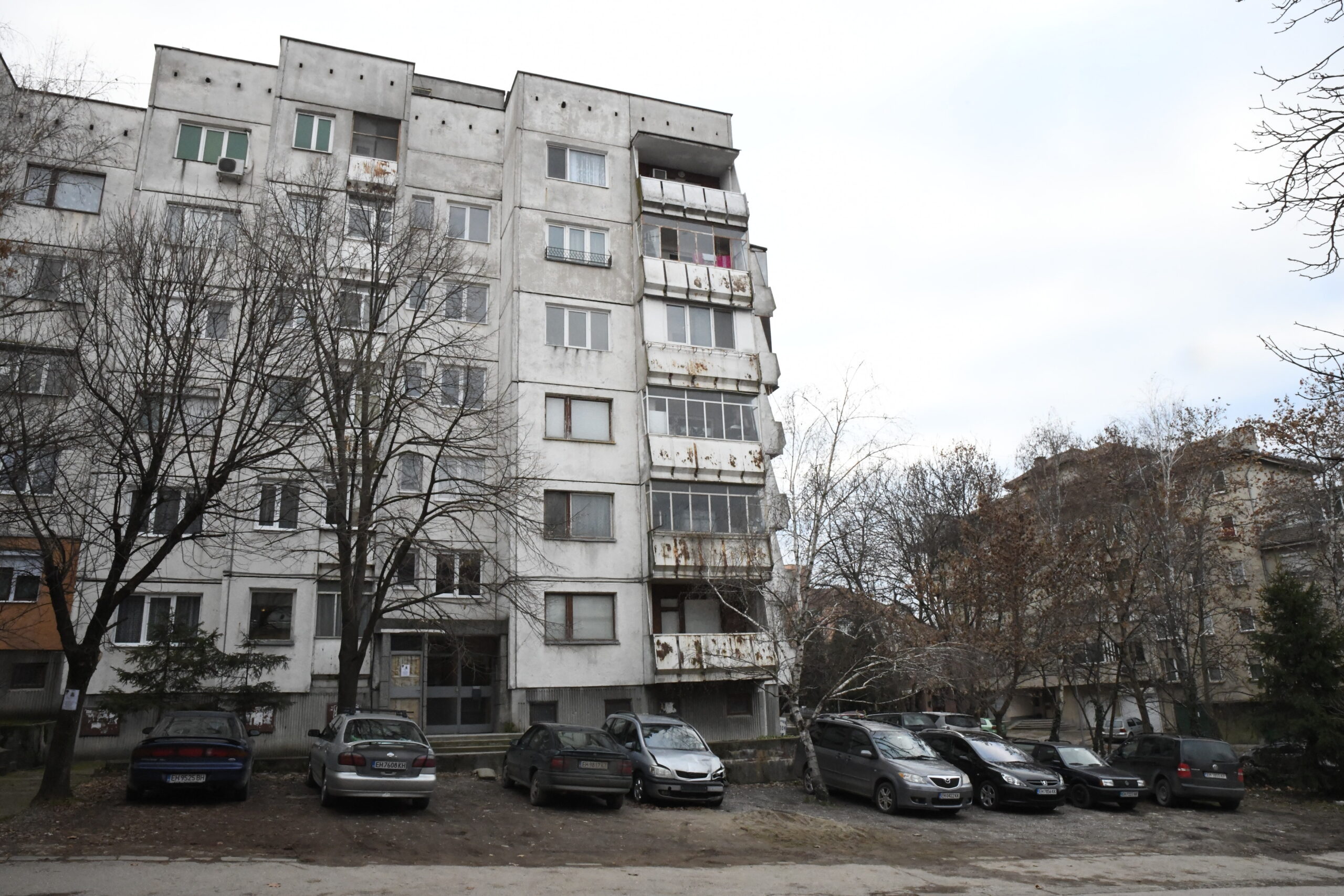
Learning how to be happy
“My dad pushed me to go to England in order to find better education there. Therefore he was not really happy when I came back to Bulgaria six years ago.” Barbara is working as a barmaid in a bar on Boulevard Vitosha, one of the main shopping streets of Sofia. She gives a sad impression in the staircase next to the bar when she explains how she came back to Bulgaria.
“I just had my first child, he was six months old and we came back to Bulgaria for holidays, and when I saw my family again I decided that I wanted to stay here.” Barbara had just graduated from her journalism master’s in the UK. She missed her family and her homeland too much and decided to return to Bulgaria after having a second child.
“I worked one year in one of Bulgaria’s biggest TV stations, but it pushed me away from the profession. We are the country with the least press freedom in the EU. That is not something that motivates you to keep on working in that field.”
Enlarge
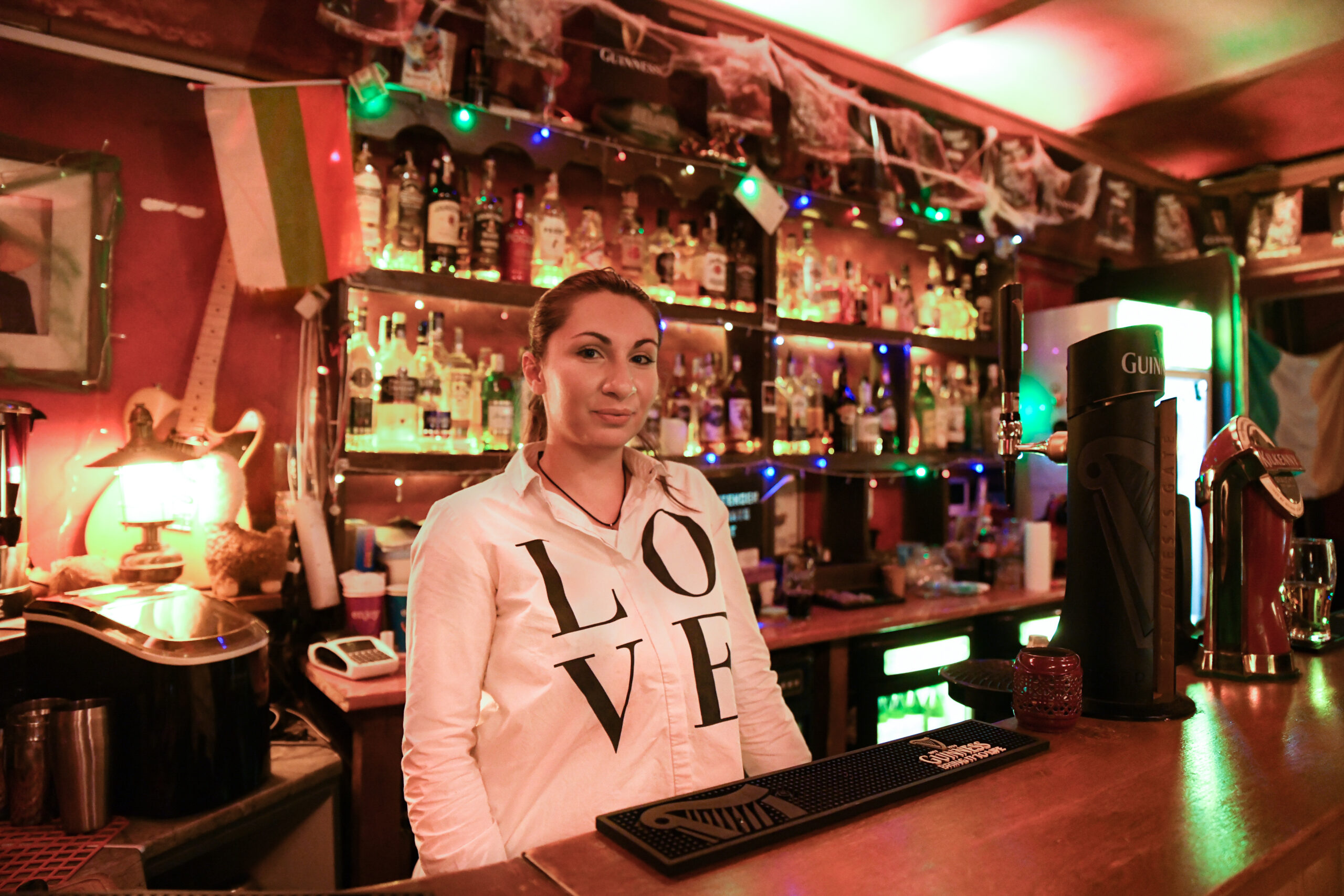
Due to a lack of motivation, high workload, and feeling not comfortable in the working field, Barbara decided to give up her job and started teaching children. Something that has always been her passion. After three years of teaching, Barbara decided that she didn’t feel at home here either. High work pressure and especially a low salary caused her to leave the job. She has now been working in McCarthys Irish Pub as a barmaid for six months. A job that is far away from what was her initial plan, but doesn’t make her return to Bulgaria any less worth it.
“I have two children now. If an opportunity arises and I am completely sure it is worth doing it, I’ll might take the risk and go abroad with them. But I still believe that I can be happy here with my family. I just have to learn and grow into that.”
Changes seem to be on the horizon
In addition to small press freedom, corruption is a major problem in the country. According to the 2021 Corruption Index, Bulgaria is the most corrupt country in the entire EU. Something that already caused the EU to stop all money flows towards the country in 2008. It is probably an accumulation of things that caused the Bulgarian people to raise their voices against corruption in November 2021. In just two months, the new anti-corruption party ‘We Continue the Change’, founded by Kiril Petkov and Assen Vassilev, became the country’s largest party in polls. It turned out not to be a storm in a teacup, as the party won the elections shortly after.
Tackling corruption is at the top of the party’s agenda. In addition, the party wants to ensure that good education and a good health care system are available to every Bulgarian. ‘We continue the change’ also promises to tackle problems such as the energy crisis and the covid-19 crisis.
Keeping connected on distance
“Turning the brain drain into a brain gain, that is one of our main goals.”, says Lilly, an employee of the non-profit organization Tuk-Tam, an organization founded in 2008. Tuk-Tam is committed to providing employment to Bulgarians returning to their homeland. In addition, Tuk-Tam, which means ‘here and there’ in Bulgarian, keeps Bulgarians worldwide informed about positive news on the homefront, through an online community that she has set up. “We want to make sure that Bulgarians do not lose sight of their country. Because that can quickly happen if you live abroad.”
Enlarge

Contrary to what a lot of Bulgarians think, Tuk-Tam’s goal is not to bring people back to Bulgaria. In addition, it would no longer be realistic to think that you can only feel connected to one country at a time, according to Lilly. “The Covid-19 pandemic has shown how easy it is to work remotely. You can contribute to Bulgaria and the future of Bulgaria while living in London. That is easily possible these days”.
Lilly herself has lived in Paris for almost ten years and knows how much impact it can have on your development to live in another country. Lilly, therefore, thinks, just like Vasko, that the decision of where you are living is a very personal one. A choice over which an institution or government should not have any influence. “We often hear people say that this brain drain is terrible for Bulgaria because all the educated people are going abroad. But at the same time, we can use these people as a nation. They are the bridge between Bulgaria and the rest of the world.”
